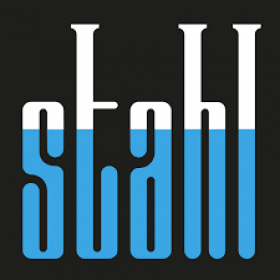Stahl's emissions reduction targets approved by Science Based Targets initiative (SBTi)
Stahl announces that its near-term greenhouse gas (GHG) emissions reduction targets have been validated by the Science Based Targets initiative (SBTi). Stahl is one of the few coatings companies to receive this validation. To date, 145 companies in the chemicals sector have submitted an emissions reduction target to the SBTi, of which 61 have had their targets validated.
Stahl’s science-based targets, which reflect the company’s commitment to the 2015 Paris Agreement goals, are:
- Stahl Holdings B.V. commits to reduce absolute scope 1 & 2 GHG emissions 42.0% by CY2030 from a CY2021 base year.*
- Stahl Holdings B.V. commits to reduce absolute scope 3 GHG emissions 25.0% by CY2030 from a CY2021 base year.
The SBTi classifies emissions reduction targets according to two potential temperature pathways: 1) limiting global temperature rises to 1.5°C above pre-industrial levels, and 2) limiting temperature rises to well below 2°C. The SBTi has determined that Stahl’s Scope 1 and 2 target is in line with a 1.5°C trajectory, while Stahl’s Scope 3 target has been validated in line with the well-below 2°C pathway.
Maarten Heijbroek, CEO of Stahl: “The validation of our Scope 1, 2, and 3 emissions reduction targets by the SBTi is an important milestone on our ESG journey as we strive to limit our contribution to global warming, in line with the Paris Agreement. Our targets are ambitious, and rightly so. Realizing our goal to help create a more responsible coatings value chain starts with being accountable for our own environmental impact, and taking concrete steps to reduce our emissions wherever possible.”
A clear strategy to reduce GHG emissions
Stahl’s approach to realizing its near-term emissions reduction targets is outlined in the company’s Environmental, Social, and Governance (ESG) Roadmap to 2030. This strategy defines the specific metrics against which progress on the company’s ESG commitments will be measured.
Stahl’s Scope 1 and 2 GHG emissions reduction targets, as submitted to the SBTi, cover emissions from all manufacturing sites where Stahl products are produced, as well as the company’s largest non-manufacturing locations. Stahl aims to lower these emissions by reducing its overall energy consumption and increasing the use of renewable energy at its sites. To achieve this, the company plans to increase its self-generated electricity capacity (using solar power, for example) and continue investing in more energy-efficient equipment.
Stahl plans to reduce its Scope 3 upstream emissions primarily by replacing fossil-based raw materials in its products with renewable alternatives, such as bio-based and recycled-based feedstocks. In addition, the company plans to introduce more low-impact raw materials into its product design.
* The target boundary includes biogenic land-related emissions and removals from bioenergy feedstocks.
Stahl Holdings B.V.






























